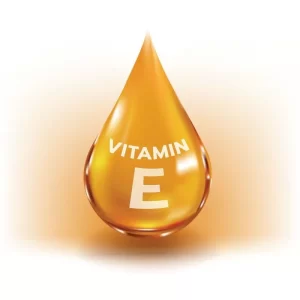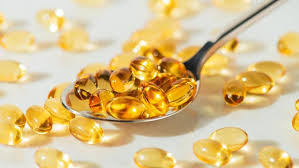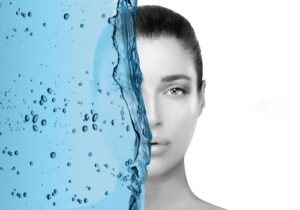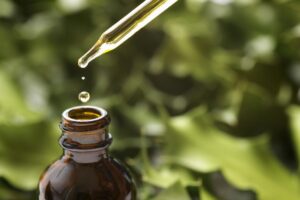When it comes to skincare, vitamin E often slides under the radar when compared to more commonly known vitamins like B and C. However, the benefits of this powerful antioxidants in cosmetic formulations cannot be overlooked, some would consider it an absolute necessity in cosmetic formulations.
Vitamin E perform two primary functions in cosmetics formulations; To protect the skin against environmental hazards and to protect formulations from the effects of oxidative damage. This ability to both protect the skin and your formulation is somewhat unique to vitamin E, in that, while there are a wide variety of plant extracts containing antioxidant properties protecting the skin there are not as many antioxidant ingredients that can help protect formulations.
In this blog post, we will delve into why you might want to reconsider the use of vitamin E in your formulations and ways to incorporate it, hopefully, by the end of this post, you will be inspired to rethink the use of vitamin E.
FORMS OF VITAMIN E
In natural skin care, what is commonly referred to as vitamin E is an oil soluble ingredient, usually added to the cool down phase of formulation to provide antioxidant protection in products, it is mainly found in two forms, namely:
Rosemary CO2 extracts is a natural form of vitamin e, it helps slow down the oxidation process of products that results in rancidity. Rosemary CO2 extract is produced from rosemary leaves using supercritical carbon dioxide (CO2) as a solvent to isolate its compounds. It is a dark brown, viscous ingredient. This form of vitamin E is used at very low usage rate.
Rosemary Co2 contains powerful antioxidants like phenolic acids and carnosic acid. Carnosic has been shown to be a more effective antioxidant than other forms of vitamin E. Carnosic acid protects against UV-induced oxidative stress, which can cause the degradation of cosmetic products.
Rosemary CO2 also contains Rosmarinic acid, known for its ability to provide antimicrobial protection in products by preventing spoilage and extending the shelf life of the products.
Vitamin E (tocopherol)
Vitamin E (tocopherol) is perhaps the more common form of vitamin E, it is an oil soluble vitamin, and is often shown on ingredients lists as tocopherol. Tocopherol as we know it is a combination of a chain of molecules (often referred to a mixed tocopherol) with alpha-tocopherol being the most biologically active, while gamma-tocopherol is best for the protection of your formulation.
It is not uncommon to find various forms of this vitamin in the market, which includes both the mixed tocopherols and isolated forms of this Vitamin, as well as synthetic esters like tocopheryl acetate which are primary used for their benefits on the skin rather than for formulation preservation.
BENEFITS OF ADDING VITAMIN E TO YOUR FORMULATION
Vitamin E offers multiple benefits to your skin, making it almost indispensable in most cosmetic formulations.
Antioxidant Benefits
One of the key advantages of using vitamin E in skincare is due to its powerful antioxidant benefits. Vitamin E has a unique quality in this regard, as it provides antioxidant benefits to both the skin and the formulation to extend its shelf life.
Antioxidants help to neutralize free radicals, which are caused by factors such as pollution, UV radiation, and stress. By combating these free radicals, vitamin E helps to protect your skin from early aging and damage, resulting in a more youthful appearance. Vitamin E has been found to have photoprotective properties, making it a valuable addition to your sun protection routine. Although, it should not replace sunscreen, when used in conjunction with SPF, vitamin E assist to enhance the efficacy of sunscreens and provides added protection against harmful UV rays.
In products, It also acts as an antioxidant to protect products from oxidation. This helps to prevent spoilage and extend the shelf life of products. Vitamin E is naturally found in many carrier oils, and you can further extend the shelf life and prevent oxidation by adding small amounts Vitamin E. Although, the oil you start with must be fresh and rancidity free, otherwise Vitamin cannot protect an already rancid product.
Blemish Removal
Vitamin E has been proven to help fade the appearance of blemishes and scars. It aids in the regeneration of damaged skin cells, promoting a more even skin tone and reducing the appearance of scars, acne marks, and dark spots. It is commonly found in popular acne and blemish removal products for this reason. Skincare products containing vitamin E can also help reduce redness, soothe inflammation, and promote general skin healing.
Moisturizing Ability
Vitamin is also known to possess some moisturizing benefits. It helps to strengthen the skin’s natural barrier, preventing moisture loss and keeping your skin hydrated and resilient. This is especially beneficial for those with dry or dehydrated skin, as it provides the much-needed nourishment to improve the skin’s texture and elasticity.
FORMULATING WITH VITAMIN E
Vitamin E is typically used at 0.1-2% as an antioxidant in formulations depending on the form.
It is oil soluble and should be added to the cool down phase of formulation. It is not pH sensitive and has been shown to improve the efficacy of ingredients like ferulic acid, Vitamin C and found to be useful for stabilizing oils and butters.
In conclusion, by adding vitamin E to your formulation you are protecting both your skin and your formulations with benefits well established by science.
Vitamin E is no doubt a powerhouse ingredient that cannot be overlooked, from its antioxidant properties to its ability to reduce the appearance of scars and wrinkles, it performs a distinctive dual function of nourishing and protecting all at the same time, a quality that makes it an outstanding skin food.
We hope you have enjoyed reading this as we have sharing, So share, do you use Vitamin E, what’s your favorite form to use?






